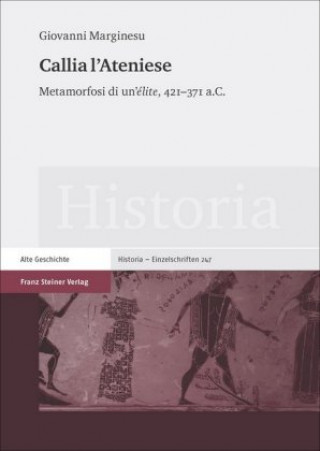
Code: 15517348
Callia l'Ateniese
by Giovanni Marginesu
Nel 'secolo breve' fra la pace di Nicia (421 a.C.) e la battaglia di Leuttra (371 a.C.), Callia (c. 455-365 a.C.) emerge quale personaggio chiave. Discende da una potente stirpe ateniese, arricchitasi enormemente grazie a sagaci s ... more
- Language:
 Italian
Italian - Binding: Hardback
- Number of pages: 198
Publisher: Franz Steiner Verlag, 2017
- More about this

68.70 €
Availability:
50/50 We think title might be available. Upon your order we will do our best to get it within 6 weeks.
We think title might be available. Upon your order we will do our best to get it within 6 weeks.We search the world
You might also like
-

Vigilia inquieta
23.61 € -

Sistemas CBIR : recuperación de imágenes por rasgos visuales
31.17 € -

The Grande Ballroom: Detroit's Rock 'n' Roll Palace
25.86 € -1 % -

Questions in Daily Urologic Practice
151.92 €
Give this book as a present today
- Order book and choose Gift Order.
- We will send you book gift voucher at once. You can give it out to anyone.
- Book will be send to donee, nothing more to care about.
Availability alert
Enter your e-mail address and once book will be available,
we will send you a message. It's that simple.
More about Callia l'Ateniese
You get 170 loyalty points
 Book synopsis
Book synopsis
Nel 'secolo breve' fra la pace di Nicia (421 a.C.) e la battaglia di Leuttra (371 a.C.), Callia (c. 455-365 a.C.) emerge quale personaggio chiave. Discende da una potente stirpe ateniese, arricchitasi enormemente grazie a sagaci stratagemmi. Nominato daduco, sacerdote d'alto rango, assume un ruolo centrale nei riti cittadini. Diplomatico di spicco, č interlocutore nelle trattative ateniesi-spartane. Malgrado ciň, i comici e gli avversari tratteggiano una figura circondata da adulatori, assillata da compulsioni sessuali, sfruttata dai Sofisti. Marchiato nel corpo dal vizio, vecchio e impoverito, Callia avrebbe celebrato un simposio suicida, bevendo la cicuta, lo stesso veleno che uccise Socrate. Indagando l'enigmatica contraddizione fra i due ritratti, si apre lo scenario di una élite spregiudicata, impegnata a resistere e adattarsi a un mondo in trasformazione, nel quale contano, le intraprese finanziarie, si praticano l'evasione dai gravami fiscali e l'appagamento edonistico, a scapito della condivisione dei valori civici. Si apprende cosě l'amara esemplaritŕ del dossier esaminato in una prospettiva della Grecia classica ancora forse da esplorare. Kallias is a key figure in the period between the Peace of Nikias (421 BCE) and the Battle of Leuktra (371 BCE). Descendent of a powerful and wealthy Athenian family, he became dadouchos, a high-ranking priest, and he took a central role in civic rites. A powerful diplomat, he led negotiations between Athens and Sparta. Despite all of this, comedians and his enemies treated him as a man surrounded by sycophants, plagued by sexual desires, and exploited by the Sophists. Old and physically depleted by vice, Kallias would have celebrated a suicide symposium drinking hemlock, the same poison that killed Socrates. Investigating the enigmatic contradictions between the two portrayals, a picture emerges of an unscrupulous élite, committed to resisting and finally adapting to a changing world in which the use of money, the engagement of finance, evasion of taxes, and hedonistic gratification come at the expense of shared civic values. In this way, the bitter exemplarity and reality of this case study reveals a dark side of Classical Greece.
 Book details
Book details
68.70 €
- Full title: Callia l'Ateniese
- Subtitle: Metamorfosi di un'élite, 421-371 a.C.
- Author: Giovanni Marginesu
- Language:
 Italian
Italian - Binding: Hardback
- Number of pages: 198
- EAN: 9783515115520
- ISBN: 3515115528
- ID: 15517348
- Publisher: Franz Steiner Verlag
- Weight: 480 g
- Dimensions: 246 × 174 × 20 mm
- Date of publishing: January 2017
Trending among others
-

Nuovissimo Progetto italiano 1 Libro dello studente + DVD Video
24.02 € -

Nuovissimo Progetto italiano 1 Quaderni + CD Audio
12.05 € -2 % -

Il Piccolo Principe
5.41 € -

Nuovo Progetto italiano
28.21 € -

Nuovissimo Progetto Italiano 1 A (ital.) Lehr-/Arbeit...
20.95 € -

Magic Mixies: Magicolor Elemental Zauberkessel - Water
32.30 € -
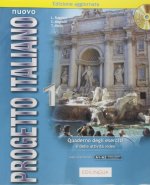
Nuovo Progetto Italiano 1 Workbook & CD
16.55 € -

Io non ho paura
16.35 € -

Harry Potter e la pietra filosofale
16.96 € -

leoni di Sicilia. La saga dei Florio
20.64 € -

La lingua italiana per stranieri - Chiave degli esercizi e dei test
6.94 € -

sound of love. 120 ricette fatte con amore
22.89 € -

vittima perfetta
5.41 € -

Storie della buonanotte. 40 racconti da portare con te
11.95 € -

Bari. Pianta turistica 1:9.000
6.23 € -

mia pizza autentica. Ediz. italiana e inglese
32.71 € -

Le prime 3000 parole italiane con esercizi
23.40 € -

Can Yaman, I love you forever
15.22 € -

bacio d'estate
5.41 € -

Libro dello Studente m. CD-ROM
24.02 € -14 % -
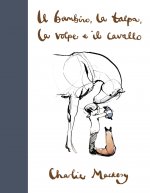
bambino, la talpa, la volpe e il cavallo
21.67 € -

Percy Jackson e gli dei dell'Olimpo. La saga completa
27.19 € -

Italia. Atlante stradale e turistico. 1:200.000
25.96 € -

Goodbye, Eri
7.76 € -

Manuale di linguistica e di grammatica italiana
41.81 € -

Avventure Di Alice Nel Paese Delle Meraviglie
20.34 € -

Alpha Test. Architettura. Test arched. 3300 quiz. Per l'ammissione a Architettura, Ingegneria Edile-Architettura, Scienze dell'architettura. Ediz. MyD
27.29 € -18 % -

Life. La mia storia nella Storia
21.77 € -

Piccolo Principe
6.64 € -

Magic Mixies Pixlings: Deer (Pink)
24.83 € -30 % -

A te, Puccini - Lieder und Arien, 1 Audio-CD
24.02 € -

Quanto ci siamo voluti bene
15.22 € -

Il Gattopardo
10.73 € -2 % -

Ieri, oggi, domani - La mia vita
15.22 € -

splendore della vita
12.97 € -
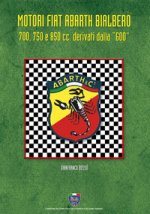
Motori Fiat Abarth Bialbero 700, 750 e 850cc derivati dalla «600»
33.63 € -

Il suggeritore
16.35 € -

QUI ITALIA.IT. Corso di lingua italiana per stranieri. Livello elementare. Con DVD
29.84 € -

Italiano per stranieri. Corso completo
18.50 € -

Il tormento e l'estasi. Il romanzo di Michelangelo
28.31 € -

Le prime 1000 parole italiane con esercizi. Livello elementare - pre-intermedio. Übungsbuch
21.46 € -

Heavy Metal. The world greatest illustrated magazine
9.09 € -

cervello del bambino spiegato ai genitori. Come crescere i nostri figli nel modo migliore
14.20 € -
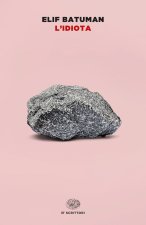
idiota
16.86 € -

Mega Sudoku 16x16 Puzzle Grandi - Da Facile a Diabolico - Volume 34 - 276 Puzzle
19.31 € -

Imparare leggendo
9.60 € -3 % -

Mowimy po wlosku 1
9.60 € -27 % -

365 storie della buonanotte Disney
28.11 € -

Italia simpre A1-B1
24.53 €
Osobný odber Bratislava a 2642 dalších
Copyright ©2008-24 najlacnejsie-knihy.sk Všetky práva vyhradenéSúkromieCookies


 21 miliónov titulov
21 miliónov titulov Vrátenie do mesiaca
Vrátenie do mesiaca 02/210 210 99 (8-15.30h)
02/210 210 99 (8-15.30h)